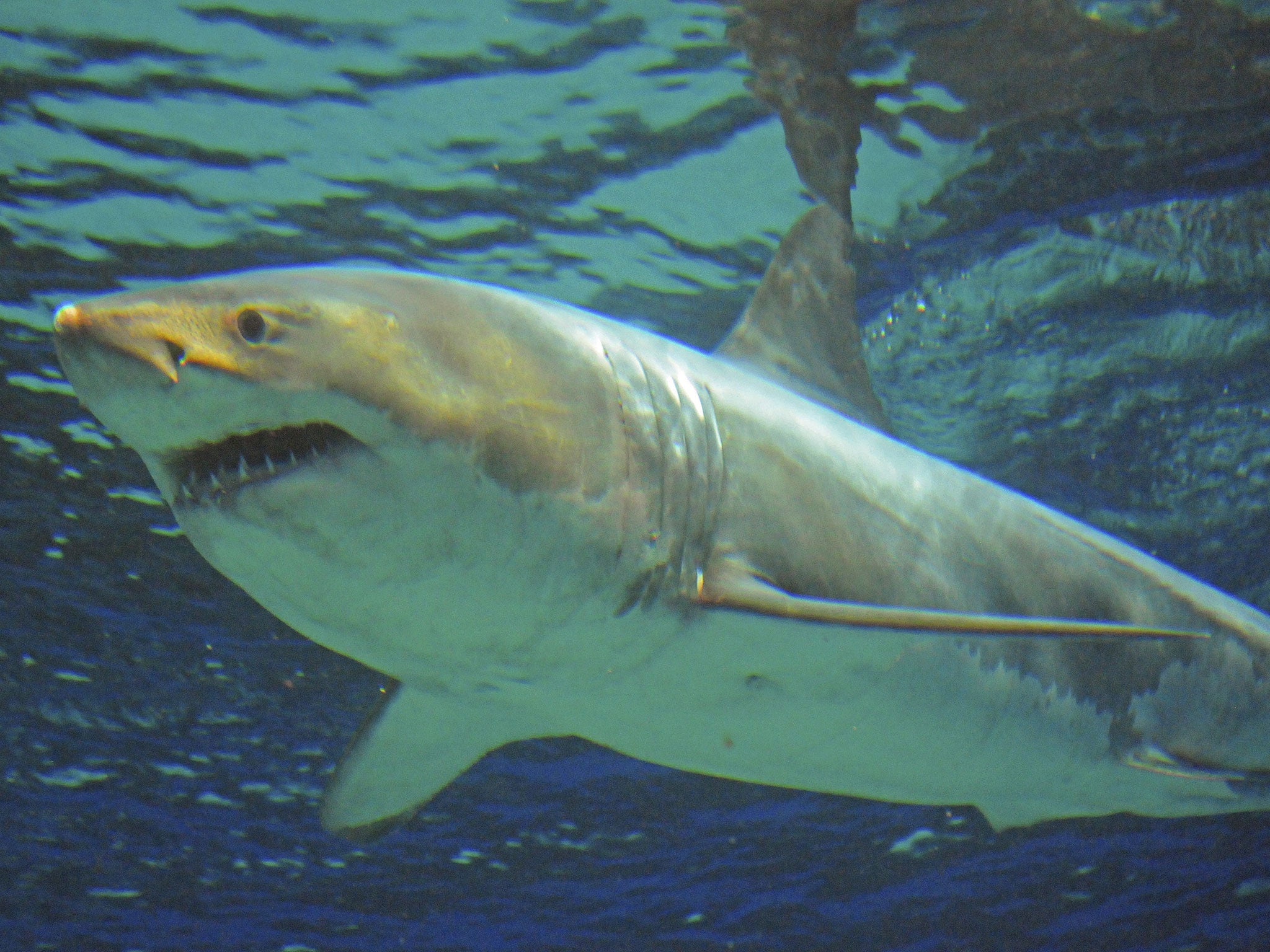Great white shark dies days after being put in Japanese aquarium in 'cruel and wrong' case of captivity
Keeping a great white shark in captivity is extremely difficult as it needs to keep swimming constantly to get oxygen and maintain its body temperature

A great white shark has died after barely three days in a rare case of captivity in a Japanese aquarium.
The 3.5 meter (11.5-foot) shark, which was accidentally caught in a net in southwestern Japan on Tuesday, died early on Friday, according to Okinawa Churaumi Aquarium. The cause of death was under investigation.
Keeping a great white shark in captivity is extremely difficult as it needs to keep swimming constantly to get oxygen and maintain its body temperature.
An official for People for the Ethical Treatment of Animals, or Peta, Asia, criticized keeping the shark in captivity as "cruel and wrong."
"The cause of death is clear: captivity. The shark never had to die like this," said Jason Baker, Peta's vice president of international campaigns.
Aquarium researcher Keiichi Sato said the aquarium abides by Japanese and international laws and believes its efforts contribute to education and science.
“Many visitors had asked us to exhibit the great white shark,” he said in a telephone interview from Okinawa.
The aquarium had announced the rare successful exhibition of the species earlier this week.
The captured shark, a male, was relatively small, and had appeared to be doing well, swimming with several other sharks, but suddenly weakened and sank to the bottom of the tank. Efforts to give it oxygen in a separate special tank failed. It had refused to eat any food since being caught.
AP
Join our commenting forum
Join thought-provoking conversations, follow other Independent readers and see their replies
0Comments